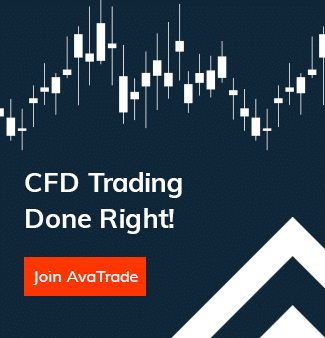
What is the ‘Stock Market’?
The stock market is a place where the shares of companies that are publicly owned can be bought and sold either OTC (Over-The-Counter) or through centralized exchanges.
The equity market, as it is also known, has established itself as a free-market economy agency, in that it offers companies the ability to access capital in exchange for offering interested outside parties a portion in the ownership of the company.
The stock market or equity market offers the opportunity for investors to increase their income without the high risk of entering into their own businesses with high overheads and startup costs.
On the other hand, selling of stocks helps the companies themselves expand. When you purchase a company’s shares it is generally associated with an increase in the company’s worth. Therefore, trading on the stock or equity markets can be a win-win for both investors and owners.
There is a negative risk, however small or large, depending on the amount of stock bought, that one can lose money in a trading environment.
If the stocks a traders hold lose value, then so does the trader. If he decides to sell his stocks when the value is lower, he will sell at a loss.
Join the Stock Market via CFD stock trading with Friedberg Direct and start trading with confidence.
How is the Stock Market Broken Down?
There are various segments of the stock market to consider when entering into a purchase or interest in the shares of a particular public company.
There are two sections that the stock market can be divided into: the primary market and the secondary market.
Primary Market
The market where securities are initially created. This is an open stock market where a company’s shares are offered and sold for the first time and directly by the company issuing them. Having precedence as a primary listed company lends to a company’s credibility and therefore opens doors to investors being more predisposed to purchasing shares in that company. The primary market is dominated by the larger investment institutes such as investment banks, hedge funds, etc.
Secondary Market
In the secondary market, investors trade these stocks between themselves, and the company that sold the stock initially is not a direct participant in the transaction. Selling and buying of shares that are already owned by investors is the typical idea of the stock market, even though stocks are also sold on the primary market, as this is the stage they are initially issued from.
OTC Market
The OTC market, also known in trading as off-exchange, is an option for investors to take part in the purchasing and selling of stock from a decentralized market.
Decentralized means that a transaction of buying or selling will take place between two parties, such as the trader and the broker. Transactions are generally done electronically – either telephonically, through e-mail or via a trading platform, and not through the local stock exchange.
The OTC market is usually for stocks and stock prices not commonly listed on the stock exchange.
The Stock Exchange
The traditional medium where stocks or shares, bonds and other securities are exchanged between a stockbroker and a trader. The stock exchange, also known as “bourse”, can provide facilities for the issue and redemption of financial instruments with the inclusion of the payment of income and dividends.
Other assets listed on the stock exchange can include derivatives, unity trusts, bonds and pooled investment products.
The Main Stock Exchanges
As most public companies make use of their local stock exchanges as a platform to publicly list their company for capital gains, the table below lists a selected few that are also offered by Friedberg Direct, stated with the region you can find them in. These are national exchanges that act as the secondary markets.
| Local Stock Exchange | Region | Public Listing |
| New York Stock Exchange | New York, United States of America |
|
| NASDAQ | New York, United States of America |
|
| London Stock Exchange | London, England |
|
| Borsa Italiana | Milan, Italy |
|
| Japan Exchange Group | Tokyo, Japan |
|
| Hong Kong | Central, Hong Kong |
|
| Frankfurt Exchange | Frankfurt, Hesse, Germany |
|
| Shanghai stock exchange | Shanghai, China |
|
| Euronext | Amsterdam, Netherlands |
|
Join the Stock Market via CFD stock trading with Friedberg Direct and start trading with confidence.
Investing in stocks
Besides the obvious, investing in a certain company’s stocks and trading, there are a number of alternative ways that can be conducted when trading to establishing a strategy, with the possibility of making a profit with a company’s shares as an investment choice.
Value Investing
This is a simple investment strategy, where certain stocks that are selected trade for a lesser amount of their inherent value. These types of investors (value investors) actively seek out undervalued stocks as they believe they will see returns on these listings. This type of investing does not require you to have a background in finance; however, an understanding of trading and basic finance knowledge is recommended when entering into any trading or purchasing of stocks.
Price-Earnings Ratio
P/E Ratio as it is better known in short, is defined as a company’s measure on its current share price relative to its per-share earnings. This is how they calculate the price-earnings ratio:
By taking the stock price of the company and dividing it by is earnings per share (EPS) = market value per share. The P/E ratio is a dollar amount that a trader can expect to invest in a company in order to receive one dollar of that company’s earnings.
Dividend paying stock
Dividends are a way that companies reward shareholders for owning a stock in their company. Dividends are generally paid in cash on a quarterly basis and can become a steady payment if the investment taken is fruitful, while this can develop another opportunity in itself to purchase additional stocks.
This is a longer-term investment with a lower risk, as these companies are generally more financially stable and overtime dividends rise and they are committed to dividend payments on their companies’ stocks.
Shares Trading
Swing Trading
Swing trading has become a very popular way to trade in the short-term when trading on options and stocks. Lasting less than one day generally, swing trader’s positions can last up to two weeks. When swing trading, the goal is to identify the overall trend and ‘swing in’ and capture the gains while the markets are on a trend. The use of technical analysis is advantageous when swing trading to monitor quick market changes as and when they happen.
Day Trading
Speculating on a buy or a sell of a particular share, commodity, index or currency that takes place strictly only on the same day. Positions can be opened the second the markets open or throughout the day; however all positions must be closed before the market closes for that trading day. Traders that use this trading strategy are known as day traders.
Depending on the type of trader you are be it longer or shorter-term, any trading in the short term will have more profit as well as the risk of loss. It is fast, and trades are entered into and exited in a short period of time.
Trading Stocks CFDs with Friedberg Direct
Trading stock CFDs is made simple with Friedberg Direct: not only do you have access to over 90 stocks, but we offer all our traders leveraged trading.
You will benefit from our tehcnical support service, as well as the peace of mind knowing that you will be trading on a secure trading platform and all trader funds are held in segregated accounts in international banks.
Join thousands of clients that enjoy the benefits of being part of the Friedberg Direct family and start trading with confidence.







